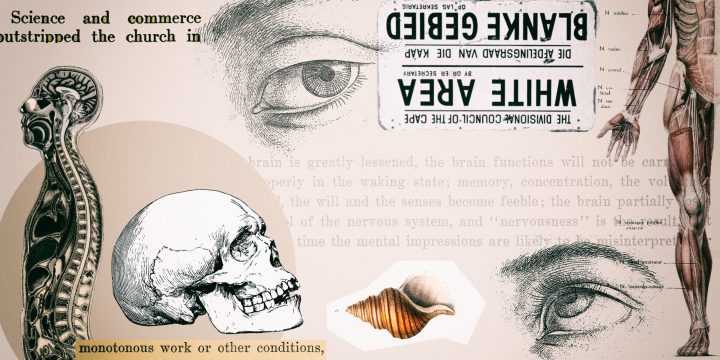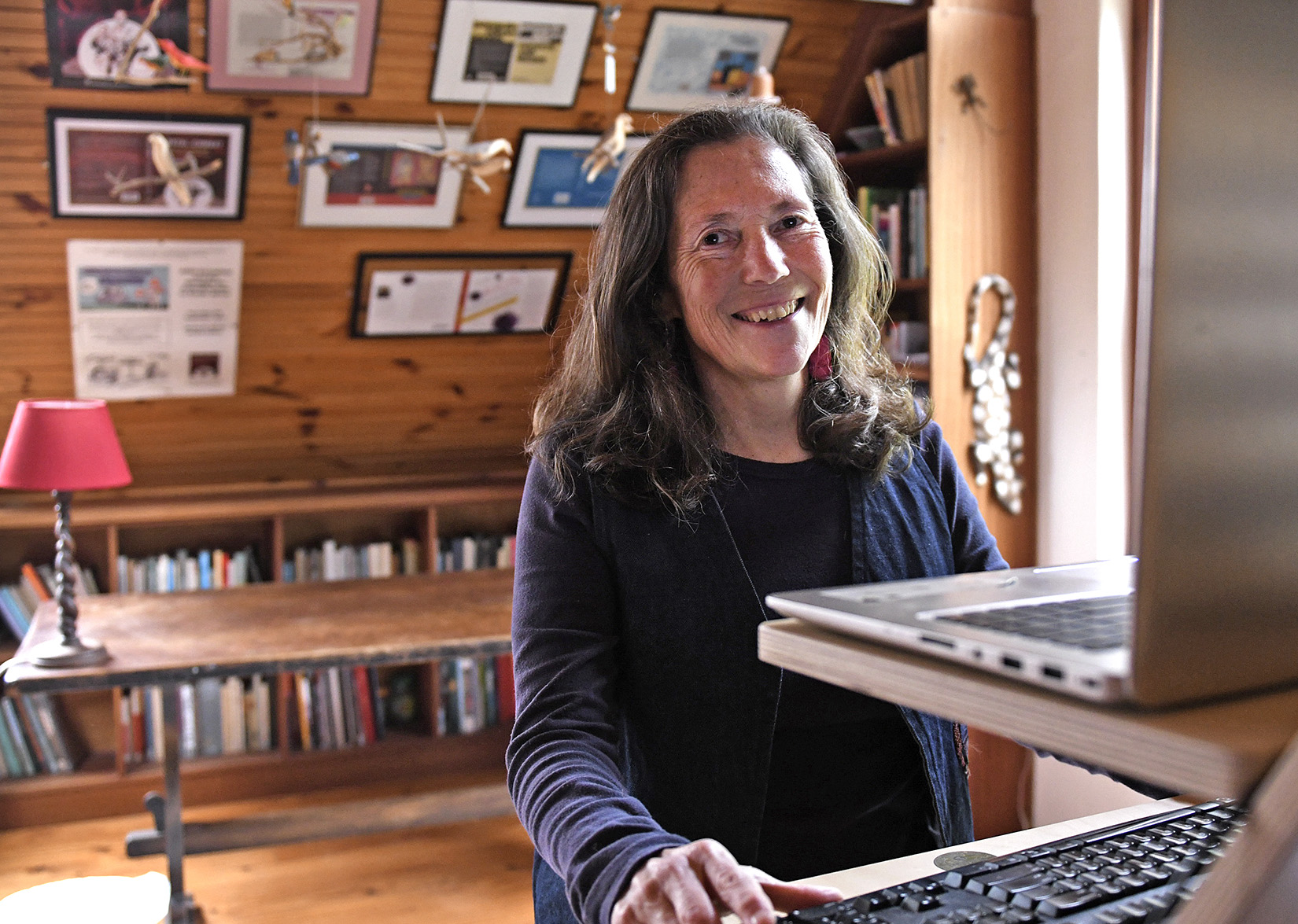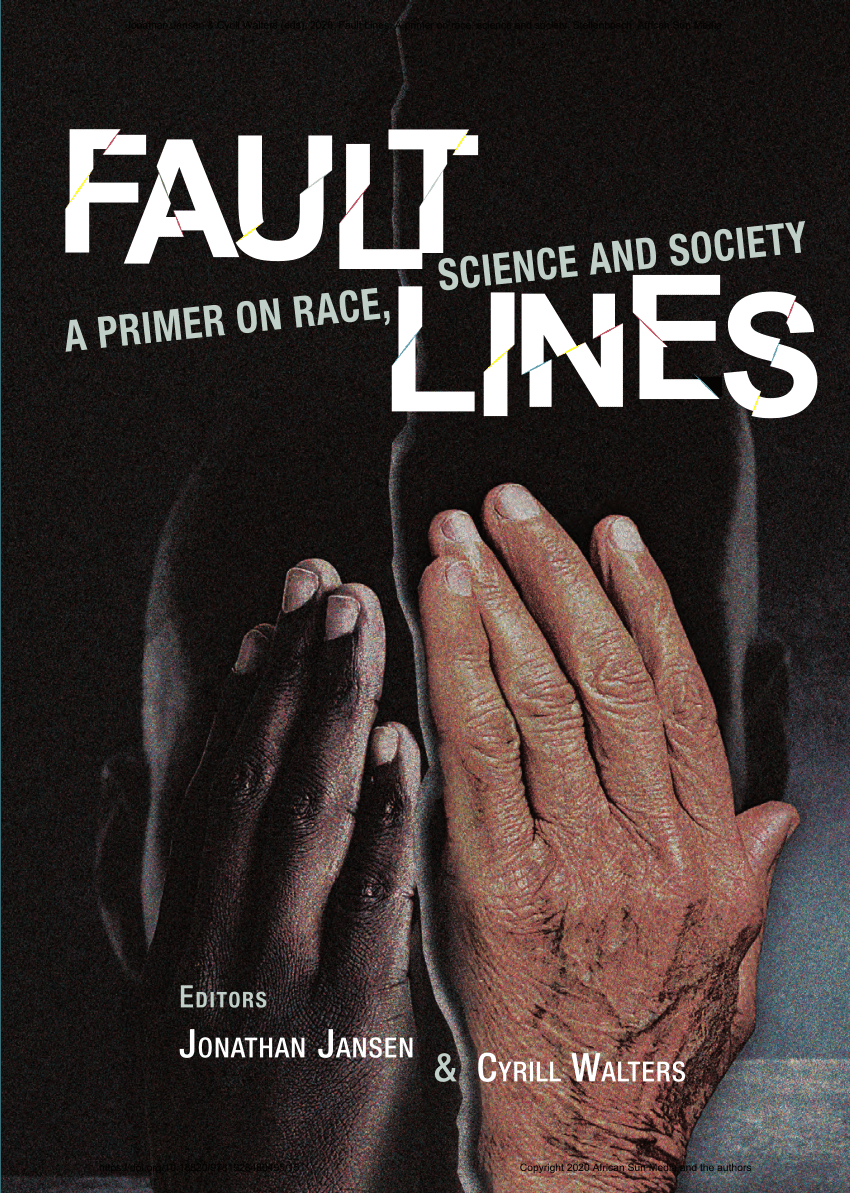SPECIAL FOCUS: Faultlines #1
The stubborn stickiness of race science in SA in the 21st century

From ‘research’ which found, in 2019, that coloured women are less healthy and less smart than others, to UCT research questioning why blacks are not greener, what’s happening at the academies? Here I explore current race science while a new book exposes the roots too.
See Part 2 here
Crazy but true. “In April 2019, a professor and four of her postgraduate students at Stellenbosch University (SU) published a research report in which they claimed that ‘coloured women in South Africa have an increased risk for low cognitive functioning, as they present with low education levels and unhealthy lifestyle behaviours’. Read bluntly, coloured women are both unintelligent and unhealthy,” writes Jonathan Jansen in the introduction to a new book.
Called Faultlines and edited by himself and Dr Cyrill Walters of Stellenbosch University, it is a collection of essays about that research and the history of race science in South Africa.
Crazy but also true. Almost exactly a year after the ‘coloured women’ research exploded in the hamlet of Stellenbosch and provoked discussion and reflection so intense it changed the curriculum of the university, another campus exploded.
This time, the research was from a scholar revered for her work on the impact of apartheid on the economy, on incomes and of the awful collisions of race and class that continue to pockmark South Africa.

Professor of Economics at the University of Cape Town, Nicoli Nattras, June 11, 2020 in Cape Town, South Africa. (Photo by Gallo Images/Rapport/Edrea du Toit)
Professor Nicoli Nattrass published a three-page commentary in the South African Journal of Science titled “Why are black South African students less likely to consider studying biological sciences?”
Nattrass has extended her field from labour markets and HIV and Aids. She is now co-director of the Institute for Communities and Wildlife (iCWild) at the University of Cape Town (UCT) and, faced with classes of nearly all white students, she wanted to know why.
All good until this point as diversity and representativity are important South African values. But then the egg splattered. The research findings were strangely race reductionist. “We also found a strong relationship between the number of pets owned by students and whether they had considered studying biological sciences. This variable is probably picking up attitudes towards and experience of companion animals as well as socio-economic status (pet ownership is more affordable for middle and upper-income groups).”
Then the clanger. “Materialist values (a key determinant of not desiring a career in conservation) are probably another indicator of socio-economic status as cross-national research shows that dominant social values shift from materialist to non-materialist with economic development.”
This is academic language to describe a finding that black students are more likely to study those streams which can bring them higher income and that the higher pursuits (like the conservation of nature and of animals) are the concern of wealthier people.
(“There is a massive scholarly literature on pre-materialist, materialist and non-materialist values. There is a significant South African literature on how students’ subject choices are shaped by factors such as their interest in the subject and perceived earnings in different occupations. Economists regard it as axiomatic that people respond to economic incentives,” said Nattrass to Daily Maverick).
It’s a boondoggle. Or nonsense, if I were to be less polite.
I spoke to Dr Luthando Dziba, a keeper of our national parks, SANParks, where he is the managing executive of conservation services.
You can read the accompanying interview with him, but the bottom line is that South Africa has excelled at growing a new generation of black professionals to steward our magnificent networks of parks. Thirteen of 20 of those parks are managed by black South African managers.
SANParks is run by 12 senior black conservationists including the large carnivore specialist, the remote sensing specialist, the landscape ecologist, disease ecologist, the GM of veterinary services, the chief vet at Kruger Park. I could go on, but you get my drift.
Dziba also gave me a detailed rundown of how SANParks develops its pipeline to green the future.
So, while Nattrass’s sloppy research sets up a binary between being black and green (or a black person with a keen environmental consciousness and pursuit) in practice, it’s not the case. (“The research was exploratory, not ‘sloppy’. A two-page commentary reporting exploratory survey research and calling for further research is, of course, very different to the massive research that went into my books on Aids, inequality and poverty,” said Nattrass.)
Her researchers interviewed 211 students hanging out at lunch at UCT, a city campus where students often get annoyed at the starlings which filch their lunch.
From such a thin research base, you cannot impute meaning to an entire country. But it was done: a near-perfect illustration of the follies of race science. Obviously, as Jansen has written here, the questions of academic freedom are relevant to how the egg splattered at UCT this month when a spooked administrative Exco dismissed the research. Paul Trewhela set out his view here and others have done the same.
But this exploration is different and that is about why our smartest brains still engage race as a fundament of research and how they come up with such dodgy findings.
A coloured skeleton in a cupboard
Like most things, the answer to that question goes back to history and the skeletons in our cupboard. “In 2013, a Stellenbosch University researcher opened a cupboard in the Sasol Museum on campus. What happened next exposed to the public a major faultline on race and science… The researcher found a human skull of a coloured person, as well as eye and hair colour charts used to measure race. By all accounts, these instruments, bearing the name of Hitler’s most senior scientist, Eugen Fisher (founder of eugenics), were once used in the teaching of anthropology at Stellenbosch,” writes Jansen.
Eugenics was used by Hitler to prosecute the Holocaust as it made popular the notion of an Aryan or super-race. Fisher brought his tools to Namibia and obviously his ideas seeped into Stellenbosch which was the petri dish of apartheid.
Old habits die hard and thus, in 2019, the research into coloured women by four white researchers on 60 coloured women was published and then retracted after an uproar similar to that now roiling about Nattrass’s research.

Professor Jonathan Jansen , who edited Faultlines. pic courtesy University of Free State.
“Surely,” writes Jansen in Faultlines, researchers should be conscious or aware of who they are (privileged whites) and who their studied subjects are (impoverished coloureds)?” A similar consciousness is also missing from Nattrass’s study as is any attempt by her or her student researchers to do basic data analysis of the core thesis. The idea that black people are not interested in the natural sciences could be tested with a simple telephone call to SANParks.
Showing up the dead-end of race science is always that easy.
Smart environmental policies like People and Parks have been around since the Nineties. While not without hassles, it was an explicit effort to bridge the divide between land reform and protected areas.
It’s worth noting that both the instances of explosive race science research have happened on two Cape Town campuses – suggesting that race bubbles impede understanding.
The book is an effort to hold up a mirror to the academies in the 21st century. It traces the history of anthropology and its persistent racial categorisation, despite genome analysis which has repeatedly shown race to have very little basis in science. And in a fascinating chapter, Jansen and Walters show the centuries-long “misery research” encyclopaedia into coloured women which provided the foundation for the 2019 opus. There is more: how universities provided the philosophical skein for apartheid by developing the field of “volksgeskiedenis” (literally Afrikaner folk history).
Albert Grundlingh writes in his chapter, “From about the 1930s until late into the 20th century, professional historical writing in Afrikaner circles was closely linked to the universities, and the universities in turn played a significant role in promoting the wider nationalist enterprise. History was regarded as a crucial discipline: the past was needed to legitimate the present.”

Remember Dr Death?
Professor Keymanthri Moodley is director of the Centre for Media Ethics and Law in the Faculty of Health Sciences and Law at Stellenbosch University. She has studied the more recent history of medical science and apartheid.
Her chapter on science, race and ethics is a journey through a sordid history from the withholding of penicillin to African-Americans in a study on syphilis to the various ways in which eugenic science was used.
In South Africa, she reminds us about the horrors of Project Coast led by Dr Wouter Basson, the cardiologist and head of the chemical and biological warfare research. Moodley writes, “Some of the projects had a strong eugenic focus and were based on race. The anti-fertility research projects aimed at developing anti-fertility drugs that could be administered to black women in South Africa without their knowledge.” This was the macabre plan to balance demographics.
There was also the Bezwoda case where Dr Werner Bezwoda, a Johannesburg oncologist, tested dangerous treatments on black women with advanced breast cancer presenting at public hospitals.
His research was later found to be fraudulent and he had conducted his research without ethics approval.
“In many cases, societies like ours have become so entrenched in racial categorisation that we often categorise ourselves and our research participants without thinking about the scientific basis of our actions or the implications of our research findings,” says Moodley.
Moodley says Nattrass’s preliminary research fits into the model of race science she has studied and she has raised ethical questions about it.
“I think it deviates in several different ways from the classical framework used to assess what makes research ethical. It is concerning that this deviation was not raised by the research committee that approved it or by the editor who reviewed it,” says Moodley, who has called for the journal to retract Nattrass’s commentary.
Moodley told Daily Maverick that she thinks the research raises ethical questions about its scientific validity, social harm, a fair selection of participants and that the designers did not adequately consider the risk-benefit ratio.
“I believe that I have complied with the research ethics requirements of the Commerce Faculty at UCT. My application regarding the data collection was approved in 2019,” said Nattrass, who refused an interview with Daily Maverick and opted instead for emailed questions. Her answers are reflected in the text. DM
There will be a special journal dedicated to responses to Nattrass’s commentary.


















 Become an Insider
Become an Insider